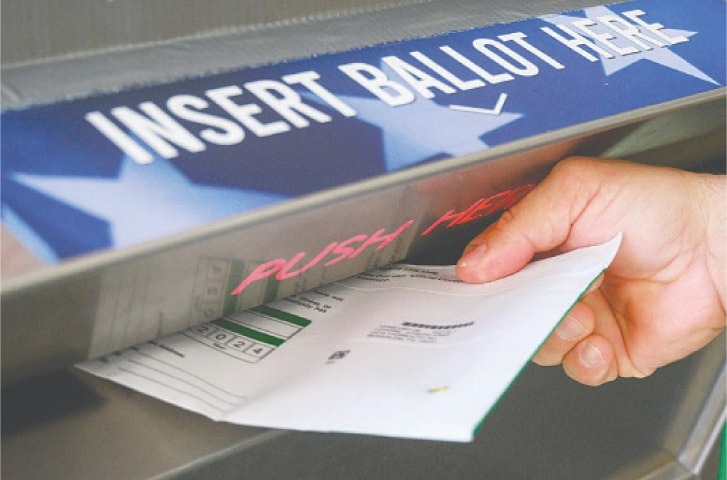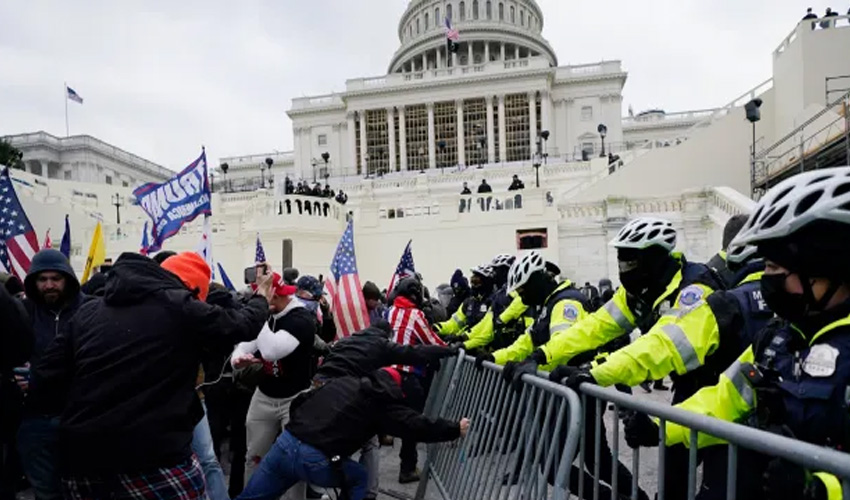Chicago - In a notable development for the upcoming U.S. presidential election scheduled on November 5, ballot papers will be available in Urdu, marking a step towards inclusivity for non-English-speaking communities in the United States.
As early voting continues in several states, election boards are expanding language accessibility to cater to a growing multicultural electorate.
The provision of Urdu-language ballots will facilitate the participation of Pakistani-American and other Urdu-speaking voters who face challenges due to language limitations.
Enhanced voting options in Chicago
Chicago has been at the forefront of this initiative, with the Chicago Board of Elections confirming that voters will find Urdu-language ballot options at designated polling stations. Additionally, voting machines with French-language screens and audio ballots will be available, enhancing accessibility for other non-English-speaking voters.
The inclusion of Urdu ballots is not just symbolic; it aligns with American federal law, which mandates accommodations for citizens with limited English skills to ensure fair and inclusive access to the electoral process. The Chicago Board of Elections has emphasized its commitment to providing a supportive voting experience. "Every citizen should have the right to vote with full understanding," a spokesperson noted, underscoring the city’s dedication to diversity and inclusion.
Options for non-English speakers across US
The measure reflects a broader commitment by U.S. election authorities to remove barriers for voters who may not speak English fluently.
In various cities with significant immigrant populations, including New York, Los Angeles, and Houston, officials have been increasing efforts to offer multilingual support in response to evolving demographics. Many states now offer election materials in languages such as Spanish, Chinese, Korean, and Tagalog, in addition to Urdu.
Voters can bring interpreters
Alongside the provision of Urdu ballots, voters who speak other languages are permitted to bring interpreters to assist them during the voting process, further facilitating inclusivity. U.S. law allows voters to be accompanied by a trusted individual who can provide translation services, ensuring that language does not prevent citizens from exercising their rights.
For many in the Urdu-speaking community, this development brings a sense of belonging. “It is truly empowering to vote in the language that I am most comfortable with,” shared a Pakistani-American voter in Chicago, reflecting a sentiment echoed by many within the community.
This year’s move to introduce Urdu ballots marks a continuation of initiatives that gained momentum during the COVID-19 pandemic, when election boards implemented broader voting options such as mail-in ballots, early voting, and language assistance. While initially intended to maintain safety, these adaptations have highlighted the need for accessible and convenient voting methods and demonstrated a shift towards more accommodating electoral practices.
Experts argue that these changes are particularly important for the United States, where diversity is integral to the country’s identity. “Ensuring every eligible voter can participate in the electoral process is essential to American democracy,” explained Professor Daniel Keane, a political science expert from Georgetown University. “Language assistance initiatives, such as Urdu ballots, signify that the system recognizes the needs of its diverse citizenry.”
The introduction of Urdu-language ballots is expected to inspire similar efforts in future elections, with officials pledging to continually assess the needs of diverse communities. As the U.S. heads towards Election Day, the availability of multilingual resources reflects a commitment to inclusivity, ensuring that every citizen, regardless of language, can contribute to shaping the nation’s future.
This shift, according to analysts, is not only a nod to the country’s multicultural makeup but also a testament to the adaptability of U.S. democracy in serving its citizens. The November 5 election, with ballots in Urdu and other languages, underscores an ongoing transformation aimed at bridging cultural and linguistic divides in the political arena.


























